Industrial cleaning wipes are heavy-duty grease-cleaning products. Industrial wipes are pretty typical in their application. This makes them familiar to many factories and industries in general.
Standard industrial cleaning wipes are made of non woven fabrics and are pretty sturdy. They are perfect for grease, bacteria, paint, and adhesives on different surfaces.
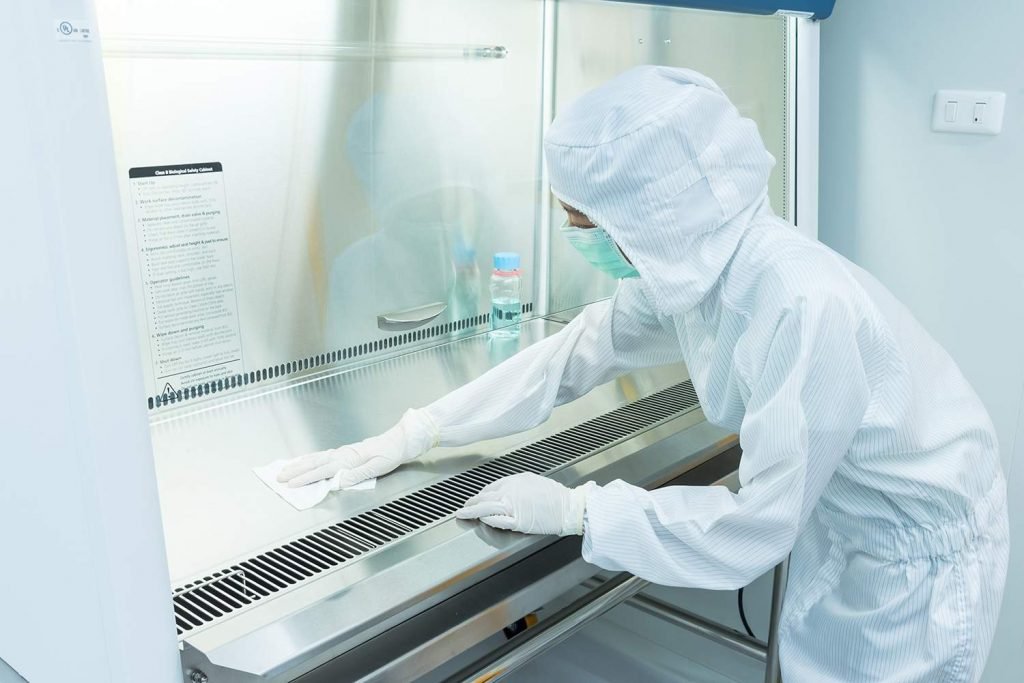
How effective are industrial cleaning wipes with grease?
Industrial rags are helpful for any situation that requires a quick cleaning. They can be used to deal with spilled water, chemicals, and oil. They're efficient at dealing with grease since these wipes were meant for a factory setting. Industrial wipes are also used for cleaning and maintaining machinery. These wipes shine while maintaining mechanical precision parts and desktop laying in particular.
Industrial cleaning wipes have higher decontamination and cleaning abilities than traditional rags. These qualities help to improve the efficiency of a workspace and hygiene levels.
How Do Industrial Wipes Work?
Industrial wipes are popular due to their different sizes and textures. A single industrial rag has two sides to maximize its cleaning efficiency. The rough side of the cleaning wipe cleans tough stains like grease and heavy oil.
The soft side is reserved for more topical use, which will be discussed later. You can think of it as a culmination of cleaning and sanitizing rags in one. Industrial sanitizing rags continue to increase in popularity due to their cleaning efficiency. Many factories have already switched to the ideal portable cleaning substitute!
Added Benefits of Industrial Cleaning Wipes
Industrial cleaning wipes are made up of non woven fabric, which is very sturdy. Most nonwoven wipes are made of synthetic fibers such as polypropylene and polyester. These are incredibly efficient at cleaning and are also responsible for their sturdiness. Assembly lines in factories are prone to several kinds of spills.
These spills need to be cleaned to prevent any damage, which can be challenging since different types of oil carry different levels of resistance. Industrial wipes are available in a dry or pre-saturated state according to need. There's no need to worry since both work well with other solvents while cleaning.
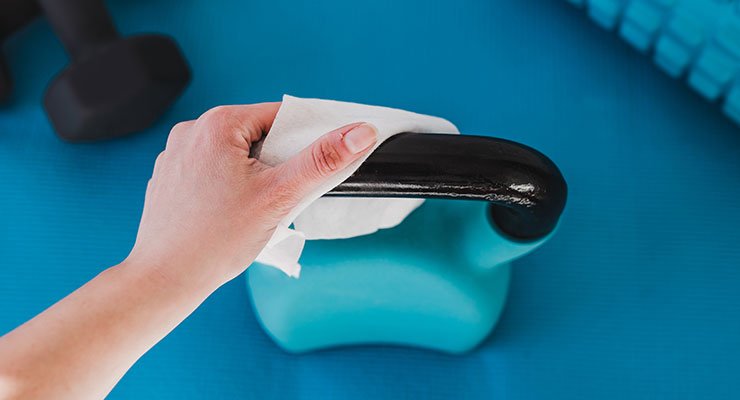
Furthermore, industrial wipes are pretty cheap and provide good value. A single industrial wipe can be used multiple times before a need for disposal arises. For the most part, industrial wipes do not contain heavy metals. In addition to that, their two-sided applications make them very useful for cleanups.
The rough side is perfect for breaking down grease and stubborn dust. In contrast, the soft side is exceptional at finishing the job. It also disinfects the area to prevent any further contamination.
Finally, when compared to conventional rags, industrial wipes are very closely bonded together. Thus, their material leaves behind little to no residue on the surface, such as fiber, cotton, or fluff. Such a property is fundamental, especially when cleaning electronic equipment. Lint can cause an accumulation of charges and, consequently, damaged equipment.
What to Watch Out for When Using Industrial Cleaning Wipes for Grease?
Like every other product in the world, industrial wipes also have disadvantages. Industrial wipes may be economically and environmentally friendly. However, there's still the fact that most of these wipes are degradable.
Depending on your workspace and the frequency of its cleanups, more of these wipes will be used. In comparison, conventional rags have a much longer life! While industrial wipes manufacturers may promote their degradable qualities, there's still caution involved.
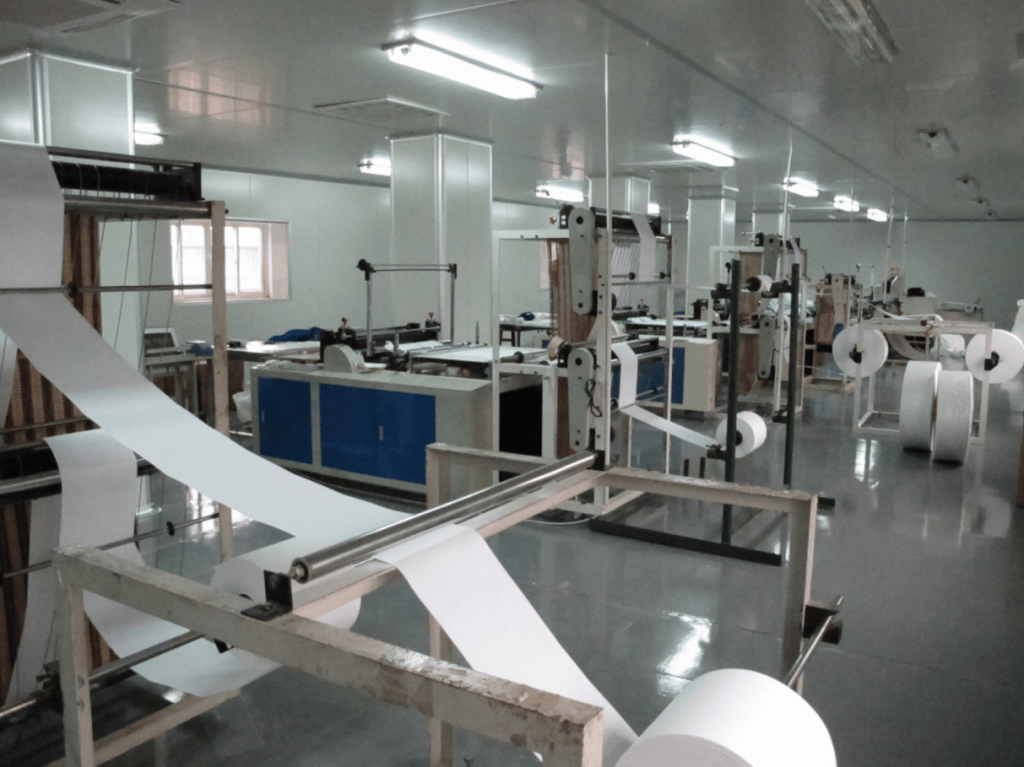
These wipes cannot be disposed of directly into the water system as they can damage marine life. Finally, the industrial wipes utilized vary from industry to industry. Cleaning wipes meant for manufacturing aren't suitable for the food industry.
After all, both industries are known to produce different types of grease and spills. Thus, you have to take care when choosing your wipes.
Do industrial cleaning wipes work for every type of grease?
As mentioned above, different industries require different types of wipes for their cleanup. These include industrial alcohol wipes, cellulose, and automotive wipes.
This is mainly because different types of grease contain different properties. These properties suggest grease might be easier or harder to clean up than other types. With that being said, let's look at some of the industries that are more prone to industrial wipes usage:
Which industries are more prone to industrial wipe usage?
1. Sanitation/Janitorial Industry
The sanitation industry uses the most significant diversity of wipes. This naturally includes heavy-duty industrial wipes, which provide a diverse range of cleaning solutions without any tear or lint residue.

2 Food Industry
The food industry is one of the most prominent consumers of heavy-duty industrial wipes. The entire hospitality industry (hotels, restaurants, etc.) is like that. After all, the hospitality industry is very diverse. Depending on the type of business, the types of industrial cleaning wipes may differ.
Let's focus on the food part of the industry for the moment. Hygiene levels are taken more seriously than ever before (mainly due to the pandemic). The food industry happens to produce diverse and resistant greases and oils.
After all, it's no secret that spills are commonplace within the food industry. Heavy-duty cleaning wipes (especially cellulose ones) are in high demand. This is due to their cleaning and antibacterial properties.

3 Health Industry
The medical industry is famous for using more disposable products than any other! They require heavy-duty cleaning wipes for everything that falls under general cleaning. The medical industry has high cleaning standards (higher than any other industry). This explains why they're in constant need of heavy-duty cleaning wipes.
After all, industrial wipes provide a value for money rarely seen in other wipes. An essential factor to note is that heavy-duty cleaning wipes have their limits. These wipes are incapable of any type of sterilization or disinfection. Especially the kind of sterilization needed after fluid body contact with equipment.

4 Automotive Industry
The automotive industry is perhaps the bane of heavy-duty industrial wipes. The industry dabbles heavily with different types of grease, oils, and paint. They're prone to spill and similar messy work.
Some of which may require many industrial wipes to clean up. Activities such as surface preparation and polishing are commonplace, which is why the automotive industry always needs chemical and oil absorbents.
Coincidentally, industrial and automotive wipes provide the best value for money. Not only that, but they are the best around when it comes to the said task.

Do industrial cleaning wipes work for topical grease?
Let's move on to industrial wipes and their topical usage. Industrial spills and grease are quite a hassle. However, an even greater annoyance is when these spills and grease accumulate topically.
Traditional hand washing is not efficient enough at eliminating grease. Trying to remove industrial substances by washing hands isn't recommended. Excessive hand washing or the use of harsh chemicals can irritate the skin.
If continued, they may even cause long-term damage. Enter industrial wipes! They are just as good at cleaning grease off hands as they are at cleaning factory surfaces. Heavy-duty industrial cleaning wipes contain antibacterial properties and are soft on the hands.
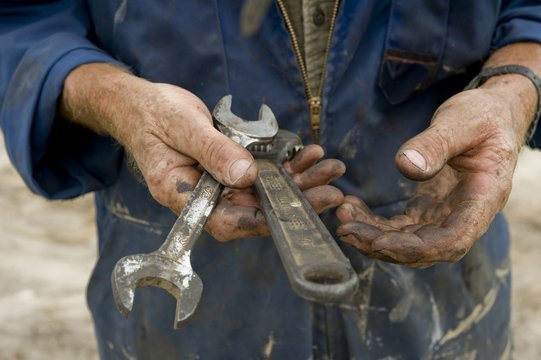
Furthermore, they're the best alternative to harsh chemicals for removing grease. Industrial wipes are much safer than harsh chemicals known for irritation and damage.
Are Industrial Wipes Hazardous for Health?
Conversely, industrial antibacterial wipes are pretty safe. They're a much safer alternative to cleaning grease than conventional methods.
They aren't hazardous for health even when used topically (on hands). Furthermore, they leave the workspace much more hygienic and better smelling. The same, however, cannot be said for conventional methods of dealing with grease. For instance, spray bottles were considered to be efficient grease cleaners.
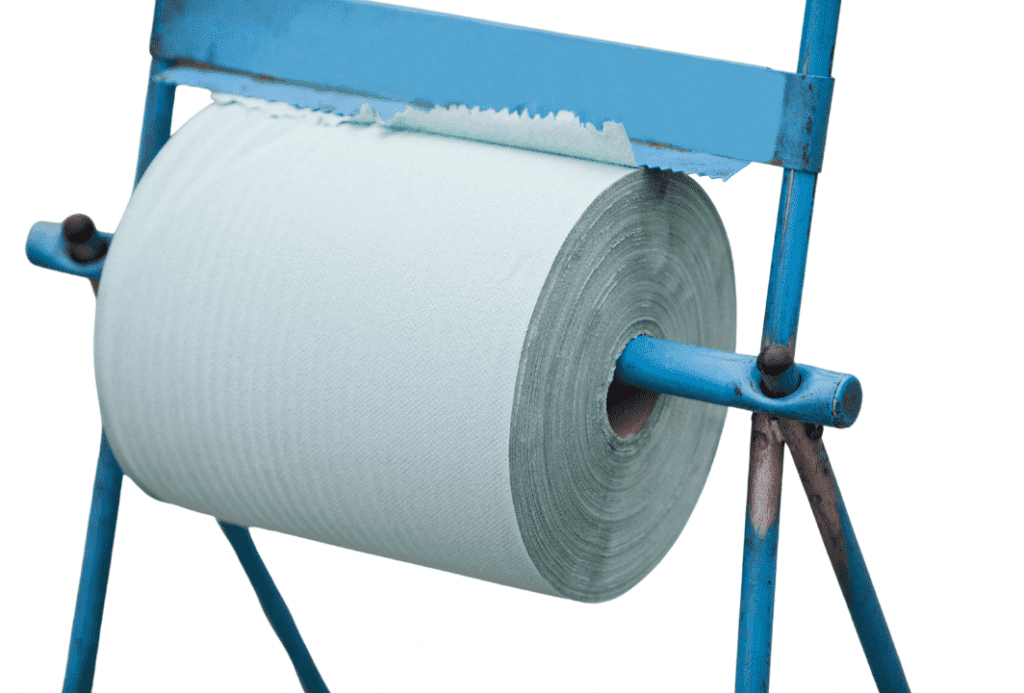
However, they also carried a considerable risk to human health (or the lungs, to be more precise). Additionally, repeated spraying of liquid on any machine or tool isn't recommended. After all, liquids generally don't get along with machinery (especially electronic ones).
Summary
Industrial wipes for grease are effective. They are very effective cleaners for oil and other industrial spills. They're good at dealing with paint, harsh chemicals, and other adhesives.
Industrial disinfectant wipes are a better alternative to traditional methods of grease cleaning. They have two surfaces: a rough and a soft side to combat grease and other tough stains. The rough side breaks down the stain in question. Whereas the soft side cleans up all the residue left behind to ensure it won't spread again. Conventional cleaning grease carries a lot of health hazards.
In comparison, industrial cleaning wipes are not only better but also safer. Instead, industrial wipes promise a more hygienic environment. They clean up stains from not only surfaces and machinery but also hands. Industrial wipes require little to no use of water. Furthermore, they leave behind no residue after cleaning. All of this makes industrial wipes to be the best and most effective option for grease!
